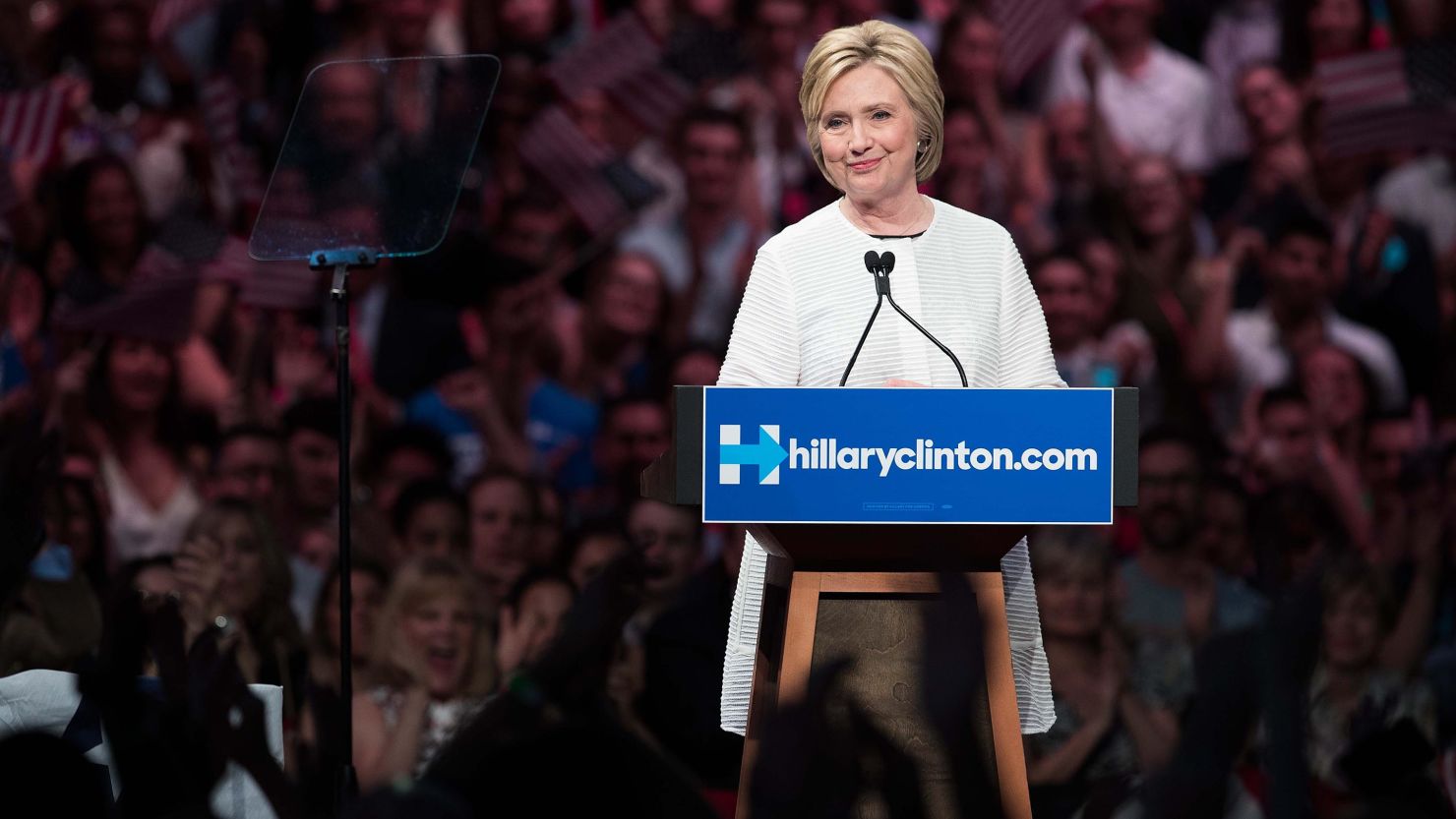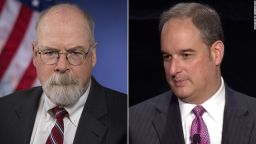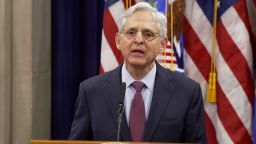Hillary Clinton’s 2016 presidential campaign is asking a federal court to keep details of its legal and research activity secret as they’re being pursued by special counsel John Durham.
Durham is seeking more access to information about Perkins Coie, the campaign’s primary law firm, and its contact and emails with Fusion GPS – a politically charged court fight that could yield more information about the campaign’s research on Donald Trump and Russia that included the infamous Steele dossier, which contained unverified and salacious allegations about Trump.
Durham wants a federal judge to look at the records privately, and the arguments over 38 documents Fusion GPS, Perkins Coie and the campaign are trying to protect are likely to happen in the next few weeks. The documents Durham has collected so far for his case, he says, “raise questions” about what can remain secret, adding that he “lacks complete information.”
The special counsel was in court Wednesday arguing to be able to use other information for the same case against Michael Sussmann, who was at the time a Perkins Coie lawyer who handed to the FBI internet research that data analysts believed might link Trump to a Russian bank in 2016. (Sussmann’s meeting with the FBI was not about the Steele dossier.)
Sussmann is fighting a criminal charge of not disclosing at his FBI meeting he also worked for the Democrats. The case is set to go to trial this summer. As part of the discussions about Durham’s access to evidence, Sussmann, Perkins Coie, Fusion GPS, the Clinton campaign and others, have each had to speak up in court this week to try to defend their records’ secrecy and keep additional information from being shown to the jury.
In sworn statements, top Clinton officials John Podesta, Robby Mook and Marc Elias maintain that work Fusion GPS did for the Clinton campaign could be considered part of legal work – and should be protected under attorney-client privilege.
Mook, Clinton’s presidential campaign manager in 2016, distanced himself from the hiring of Fusion. He said he enlisted Perkins Coie for legal work as well as advice on fact-finding and research but “was not aware during the campaign of any contractors that Perkins Coie engaged to assist it in providing legal services and legal advice.”
Podesta, the Clinton campaign chairman, said in his own affidavit he believed the legal work documents held by Perkins Coie or its subcontractors, like Fusion GPS, should stay secret.
The trio of sworn statements mark the first time the campaign – and these men in particular – have told their story publicly in court. They also provide an unusual revisiting of the thinking of a campaign as it prepared to face Trump’s unique brand of political bluster in the general election.
Elias, the campaign legal chief and also then a Perkins Coie partner, said he realized from early on in the campaign that Clinton’s likely opponent Trump could unspool several legal tangles, and the campaign would need to hit back with sometimes hard-to-find research and publicly available documents.
Elias told the court that Fusion GPS’ work was tied squarely to any possible legal response the campaign might need to muster.
Elias cited an engagement letter between Perkins Coie and Fusion GPS to help with legal advice, especially if public records and strategic thinking were needed for litigation. That letter is one of the documents Durham wants the judge to review, according to the court filings.
Trump in the past had been quick to threaten to sue other politicians and had peddled the falsehood that former President Barack Obama didn’t have a US birth certificate, Elias noted.
“My recollection is that those claims resulted in threatened and actual litigation,” Elias wrote. “Accordingly in my and the firm’s capacity as General Counsel for the Clinton Campaign, I expected to encounter similar claims and litigation risks from the opposing candidate, political party, and their supporters.”
He continued: “In the context of the 2016 election, I generally recall being aware that candidate Trump had been involved in an exceptionally high number of lawsuits – ranging from slip and falls to complex bankruptcies and restructuring – more than I recall ever previously encountering on behalf of a client in the political arena. I also generally remember being aware that he had used the threat of defamation litigation for tactical advantage.” Fearing threats of lawsuits like those that had faced past candidates John Kasich, Ted Cruz and Jeb Bush, the DNC and Clinton campaign employed more than 100 researchers and communications staffers in 2016, Elias said.
Elias’ statement is somewhat different from the characterization both Trump and Durham himself have used to described Fusion’s efforts – with both classifying it more as the type of political smear effort known as opposition research; in Trump’s words, to “dig up ‘dirt’” for a “phony dossier.”
CLARIFICATION: This story has been updated to clarify that Michael Sussman is no longer a lawyer with the Perkins Coie law firm.






